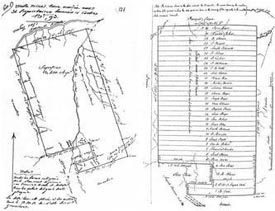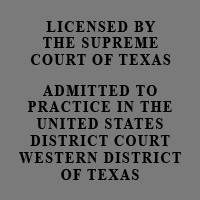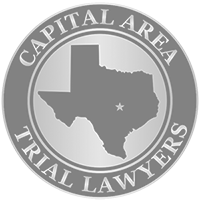Real Estate Lawyer in Austin by Texas Property Attorney Jason S. Coomer
Jason S. Coomer is a real estate lawyer in Austin. He handles Texas house, land and business property matters including negotiating and litigating disputes. As a residential and commercial real estate attorney, Mr. Coomer advocates for his clients realty rights. He regularly assists owners, buyers, sellers, investors, heirs, beneficiaries and other individuals with their Austin and Texas property issues.

If you need a real estate lawyer in Austin to advise you, use this contact form. Alternatively, feel free to send an email message to Texas property litigation attorney Jason Coomer.
What type of Austin real estate advice does Jason Coomer provide as a Texas lawyer?
As a property attorney, Jason Coomer has extensive experience in providing legal advice and lawsuit services with respect to the following:
- Joint Owners or Co-owners of Real Estate
- Partition of Houses, Buildings and Land
- Forced Sale of Realty
- Inheritance of Real Estate
- Adverse Possession in Texas
- Trespass to Try Title
- Action to Quiet Title
- Real Estate Fraud, Forged Deeds and Conveyances
- Appointment of Receiver to Manage or Sell Property
- Travis County Ad Valorem Tax Lawsuits
- Deed of Trust Foreclosure
- Easement Negotiations
- Eminent Domain and Just Compensation
- Oil, Gas and Mineral Interest Matters
- Residential Property Transactions
- Commercial Property Transactions
What is a joint owner or co-owner of Austin real estate?
A joint owner or co-owner of real estate is an individual or entity that owns an undivided interest in property with at least one other owner. At times people choose to purchase a house, building or land with another. In other instances, people may inherit real estate and then the joint owner relationship is created. Many issues can arise when title to a Texas property is vested by co-owners. Disputes over possesion, property taxes, upkeep, loan payments and ownership are among some of the challenges that realty co-owners may face. If the joint owners cannot resolve the controversy themselves, a real estate attorney may be needed to advise and assist with negotiations. Additionally, a lawsuit, litigation, mediation, court orders or settlement may be necessary.
If you are in a disagreement with a co-owner of a Central Texas property, it may be in your best interest to contact an experienced real estate lawyer in Austin.
What is property partition?
Partition of property is the legal dividing of the co-owner's interests in real estate. Partition of property typically occurs after a conflict between the joint owners of realty or after the inheritance of a piece of real estate by multiple people. If the property is a large plot of land, it can usually be split into smaller parcels. Each parcel or lot would then be owned individually. As such, this eliminates the problems that can arise between co-owners. After partition of the land, each individual owner is typically responsible for their own parcel and they own the plot outright.
Austin is becoming a more urban type city where much of the real estate includes improvements. For example, a house or building might be fixed to the property. However, there are still many valuable tracts of land (without improvements) in Austin and around Central Texas. When the real estate includes houses or buildings it might not be able to be divided into equal parcels. In this case, the real property and the fixtures are sold and the proceeds of the sale are split between the co-owners. The legal term for dividing property not susceptible to fair and equitable partition in kind is partition by sale. In other words the Court has to appoint a person, usually a receiver, to sell the property and distribute the proceeds to the co-owners.

If you are in a situation that might involve dividing Travis County land into smaller parcels or an Austin partition by sale, it may be in your best interest to get in touch with an experienced Austin partition suit attorney. Feel free to send an email message to Jason Coomer, a real estate lawyer in Austin.
Can you force the sale of a house or building if you are a co-owner?
In most instances the answer is yes. As discussed above, if the property cannot be divided equally into parcels, a co-owner can seek an order directing sale under a partition suit. These types of lawsuits can be complicated and having a real estate lawyer in Austin advocate for your rights can be beneficial. Sometimes a joint owner that inherited an interest in the property may have the right to buy out the other owner/s if one of the owners filed a partition suit. This falls under the Uniform Partition of Heirs' Property Act.
Another form of a forced sale of Austin property can be ordered by the Court. This can occur when one co-owner stops paying their share of the property taxes for a long period of time. If the other joint owner makes demand and pays all of the ad valorem property taxes on behalf of the co-owner that stopped paying, a forced sale of the non-paying owner's interest can be sought. However, forced sale cases are intricate and individual legal advice is recommended. Every Travis County forced sale case has its own facts and a real estate lawyer in Austin can provide legal services regarding your specific situation.
What is a real estate receiver and can a receiver be appointed to manage or sell Austin property?
A receiver is an individual that is appointed by the Court to take control of a piece of real estate. In the Travis County District Court, this custodial control is typically given to a licensed, bonded and trusted Austin lawyer. At times the Court may appoint a licensed real estate agent or broker to serve as the receiver. The receiver will be tasked with securing the property and making sure that the property is insured. Additionally, the court-appointee will follow the Court's direction with respect to the sale of the property. Further, a receiver can be given the powers to collect rent from tenants or evict squatters. After a forced sale, the Court will give the fiduciary the authority to pay expenses and distribute the property proceeds to the rightful owners. Typically, your Austin real estate attorney will work with the receiver and the Court to protect your rights as a land owner during a forced sale.
How to clear title to inherited real estate in Austin?
The inheritance of real estate in Austin can have many challenges. When a loved one passes away while owning property in Travis County you might need to take action to secure your interest in the realty. Taking title to property after a death can be done through several methods. Each case has specific details that will control what needs to be done. A Travis County real estate and probate lawyer can advise you on the best way to secure title to the decedent's realty. Jason Coomer can assist you with this process and help you take clear title to the property. Jason Coomer has extensive experience working with the Travis County Probate Court on inheritance matters. Additionally, he has handled a wide-ranging variety of cases before the Travis County District Courts. Many of these cases involved real estate, property, land and house litigation matters.
See Austin Texas Inheritance Lawyer for more information regarding inherited real estate.
In addition to advising his property owner clients and advocating for their realty rights, Jason Coomer handles a variety of Austin real estate ownership and property title disputes. Some of those matters include adverse possession, trespass to try title, action to quiet title, real estate fraud, forged deeds, Travis County tax lawsuits, deed of trust foreclosures, easement negotiations, eminent domain, public use/just compensation, mineral interest matters, residential property transactions and commercial real estate transactions.
For questions on a specific house, building or land dispute in Central Texas or Travis County, use our contact form or feel free to send an email message to Jason Coomer, a real estate lawyer in Austin.
Fun Fact: Travis County Archives and the Austin History Center
You can search for your property in the Travis County archives to have a better understanding of the history behind the land that you own.
Feel Free to Contact Us with any Questions
Associations




